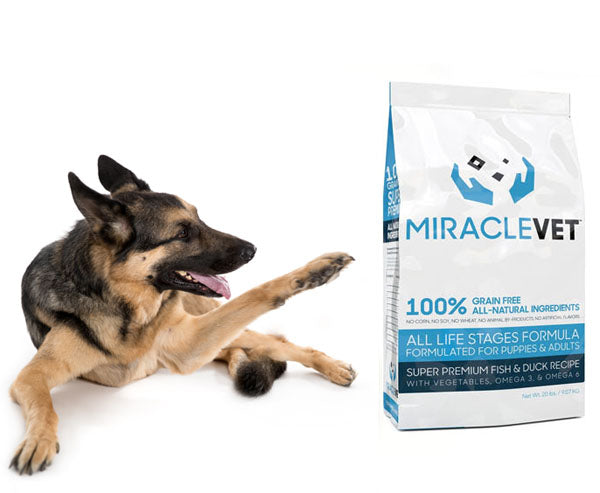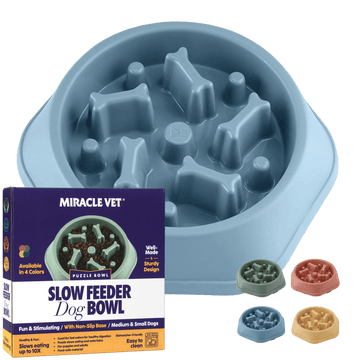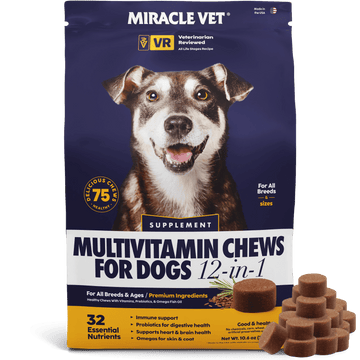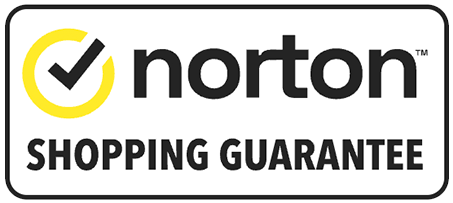
Grain Free Dog Food Benefits
Take a trip to any high-end health food store and you’ll see more grain-free and gluten-free food products than ever before. It seems like people are finally starting to realize just how much better they can feel if they eat more nutrient-dense foods, like meats and vegetables, instead of filling up on the cheap carbohydrates found in corn, wheat, and other grains.
So you, as a responsible pet owner, are probably wondering if you should also be feeding grain-free food to your dog.
Are grains good or bad for your dog? And should you consider switching to a grain-free dog food?
There’s a lot of misinformation out there on this topic, so let’s dive into what the science actually has to say on the matter.
The Truth About Dogs & Digesting Grains
Some people act as if feeding grains to your dog is the worst thing you could do for their health. But that’s probably an exaggeration.
Here at Miracle Vet, we’re not shy about the fact that we’re not big fans of grains for dogs. But we also believe in being transparent and fair. We’re not fanatics—instead we trust the science to help deliver the healthiest, most natural dog foods we can.
The truth is that dogs can actually digest grains, at least better than wolves can. (Wolves being the animals that dogs evolved from.) Wolves have only 2 copies of the gene for amylase, which is a protein that breaks down starches. Dogs, by comparison, have between 4-30 copies of the gene.
So it looks like dogs have evolved the ability to digest grains over time. But the real question is, just because dogs are able to digest grains…does that mean they should? Does it make grains GOOD for your dog?
Let’s look at the benefits of grains first. Grains are better than nothing and they provide your dog with some of the most basic nutrients they need to live—macronutrients like (mostly) carbohydrates with a tiny bit of protein, fat, and some fiber.
That’s about it for the benefits. Now let’s look at some of the downsides of eating grains.
7 Problems With Grains In Dog Foods
As far as your dog is concerned, grains are a lot like fast food. They’re a quick, cheap, and tasty source of calories—but they don’t really offer much in the way of nutrition.
They also present a few issues that could be causing health problems in your dog.
1) Dogs May Be Allergic Or Intolerant of Grains
Some dogs may have allergies or dietary intolerances to specific grains that could be making them miserable. If your dog is experiencing mysterious dietary issues or respiratory problems, try cutting out all grains to see if their condition improves.
2) Many Grains Are Genetically Modified
Many grains are genetically modified from their original state by big companies seeking to increase their profit margin. The problem with this is that GMO grains are not the same as the grains that our bodies evolved to eat. This can cause digestive problems, especially for animals like dogs that are primarily carnivores. Genetically modified grains can even contribute to…
3) Grains May Promote Leaky Gut Syndrome
Another big issue is leaky gut. Many people believe that grains can create small tears or fissures in a dog’s intestines and lead to a condition called leaky gut syndrome. The danger of leaky gut syndrome is that bacteria, undigested foods, and toxins now have a path that allows them to “leak” out of your dog’s intestines and directly into their bloodstream.
Miracle Vet dog food contains probiotics which allow for good bacteria growth to heal this condition. Or you can try our Omega Biotic Chews which contain probiotics and prebiotics which will heal Leaky Gut Nicely.
4) Grains Have Too Many Carbs
Dogs are primarily carnivores, which means they need a lot of high-quality protein in their diet. Grains contain very little protein, and what protein they do have is low quality. (In other words, it does not contain the full spectrum of essential amino acids.)
Instead, grains are very carbohydrate-heavy, which means that they can throw your dog’s preferred macronutrient ratio out of whack. Instead of eating a protein-rich diet with some carbs thrown in for balance, grain-based dog foods flip that ratio around so that your dog is eating mostly carbs. That is NOT the ideal nutrient ratio for a dog.
5) Grains Can Promote Inflammation
For optimal health, animals need a good balance of omega-3 fats to omega-6 fats. But grains like corn are extremely high in omega-6 fats and low in omega-3 fats. This imbalance of fats has the tendency to promote inflammation (the “silent killer”) in your dog.
6) Grains Are A Cheap Food Source
Want to know why many companies really choose to include grains in their formulas? Because it’s a lot cheaper than adding high-quality ingredients like meat meals and organic fruits & vegetables. Do you really want to choose your dog food based on the profit margin it provides to big mega-corporations?
7) Grains Don’t Contain Not Enough Vitamins & Minerals
Finally, the nail in the coffin for grains is that they just don’t have the same rich diversity of nutrients that you can find through more natural foods like fruits & vegetables.
For example, here’s a table comparing the nutrients present in wheat vs spinach:
If the 2 were even remotely close, that would be one thing. But they’re not. Compared to much healthier fruits & veggies, grains are basically empty calories.
Remember that those are all important vitamins & minerals that your dog needs to be healthy. And if your dog isn’t getting them from their dog food, they probably aren’t getting them at all.
What Should You Look For In Your Dog Food?
Hopefully by now you understand why grains are not the best choice for your dog. No, they aren’t a poisonous substance that is going to kill your dog overnight…but compared to healthier options, they’re basically the equivalent of eating McDonald’s for every single meal.
So what should you look for in your dog food instead?
Here are a few things to watch for in the ingredients label:
- Make sure the #1 ingredient is a meat meal from a named animal. (Even better if the #2 ingredient does this too.)
- Look for vegetables relatively high in the ingredients list. Peas, lentils, beets, celery, spinach, and so on.
- Also look for vitamins that have been added to make a nutritionally complete meal, such as ascorbic acid (vitamin C), niacin (vitamin B), vitamin E, vitamin D3, and so on.
Some of the ingredients you’ll want to AVOID include:
- Corn
- Soy
- Wheat
- Artificial ingredients or flavoring
- Propylene glycol
- Artificial coloring
It’s a lot of work to seek out all these ingredients on your dog food labels. If you’d like a quick & easy suggestion that is guaranteed to have the absolute best ingredients available for dog foods, check out our Miracle Vet Super Premium Dog Food. We spare no expense to make this the absolute highest-quality dog food available anywhere.









